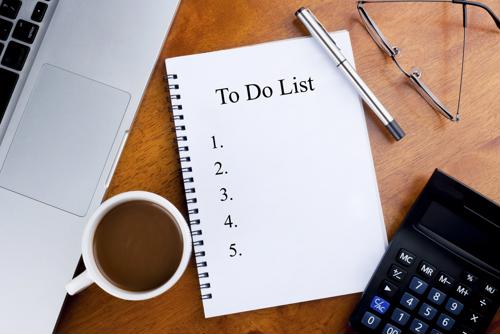
Effective time management: Maximizing productivity and balance
01 May 2024
So much to do, so little time. And did I mention all the distractions? Oh, the distractions — from your smartphone's screen lighting up with messages to social media luring you away from important tasks.
Stellar time management skills have never been more crucial. Especially if you want to maintain a good work-life balance. Fortunately, I, like many others who have struggled with balancing work and modern distractions, have lived to tell the tale. Read on for what I hope you'll find to be helpful time management tips.
Prioritisation techniques
If you've never heard of the Eisenhower Matrix or the Pareto Principle, don't worry, I've got you covered.
The Eisenhower Matrix helps you divide your activities into four categories based on urgency and importance.
- Tasks that are both urgent and important should be done immediately.
- Tasks that are important but not urgent should be scheduled for later.
- Tasks that are urgent but not important can be delegated.
- Tasks that are neither urgent nor important should be eliminated.
The Pareto Principle, or the 80/20 rule, suggests that 80% of results come from 20% of efforts. When you can identify critical tasks and focus on them, it's possible you can dramatically increase productivity and ensure that energy is directed toward activities that provide the greatest returns.

Identifying time-wasters
Now the fun part — finding new ways to free up time in your day. Here are a few common time-wasters and tips for eliminating them:
- An overflowing inbox: If you're checking your inbox every few minutes, it can be hard to focus on essential tasks. Take a hard look at your inbox and the number of emails you receive within (or beyond) the workday. Too much junk mail? Unsubscribe. On unnecessary emails at work? Ask the sender to remove you.
- Unnecessary meetings: Are you invited to meetings that have you questioning why you're even at them? Do a better job of protecting precious time by asking questions before the call. Do you need to be there? Is there an agenda?
- Online distractions: If you find yourself going down social media rabbit holes when there's important work to be done, you can always download apps that block these sites on your computer or smartphone.
Goal setting and planning
Once you've identified time-wasters and freed up more time in your day, set daily, weekly and monthly goals for yourself. Break your long-term objectives down into smaller, manageable tasks. Use a planner or digital tool to schedule these tasks, ensuring that each day has a balanced mix of effort and reward. Regularly review and adjust your plans to stay on track and adapt to any changes in priorities or objectives.
Work-life balance
For a healthy work-life balance, good planning is only as important as a commitment to setting boundaries between work and your personal life. This has only become more challenging in a world where so many people now work remotely part- or full-time.
No matter your working conditions, strive to designate specific work hours and stick to them, take breaks and truly respect your personal time. Learning to say no to additional commitments that don't align with your personal or professional priorities is also key. Then, outside of work, make sure to engage in activities that reduce stress and enhance well-being, like exercise, hobbies or spending time with loved ones.
Better manage your time with help from ICML
Time management is a critical skill that can lead to greater professional success and personal satisfaction. If you'd like to learn even more helpful strategies, turn to ICML. For further development in time management, consider our Time Management course.





